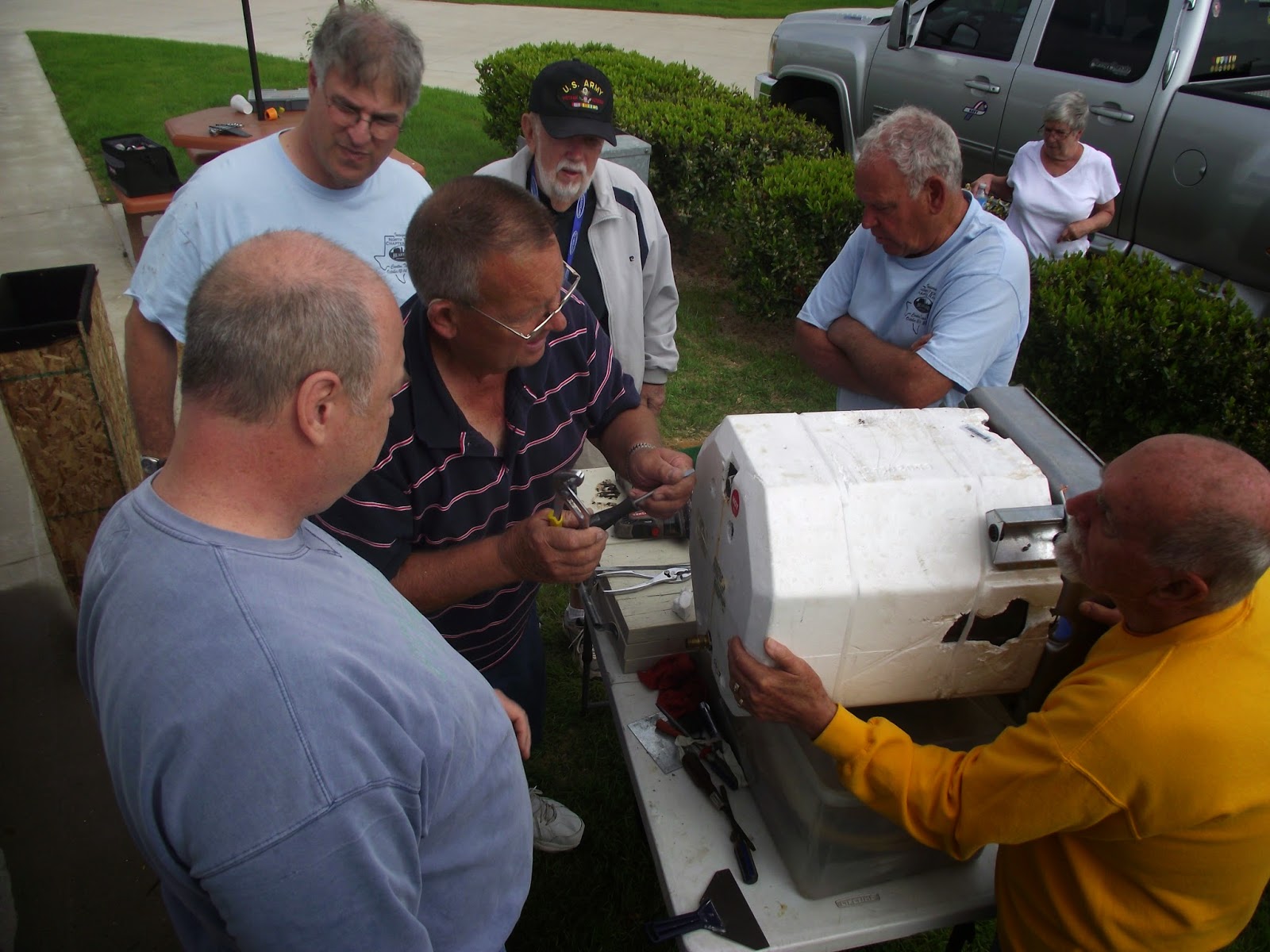When we stayed at Rayford Crossing, several of the guys and I wanted to take a day trip to Nac to visit the Foretravel factory, so since I am here and have nothing better to do, I took the tour this morning with two other men that are looking to buy one. Not me! I wanted to look but am not changing to a motorhome!
First of all, I never knew the name Foretravel meant anything other than the brand name. The Fore family actually founded the company in 1967 and one of Mr. Fore's grandsons still works here as a salesman. The family has sold out and no longer owns any interest in the company. There are still a few employees working here from the early days.
Everything built here is custom built to order and no two MH's are alike. The IH series is the top of the line and below that are the Phenix and Nimbus models. All of these are built on chassis' that are built in-house. They are now building one unit for a customer on a Spartan chassis, which is the first one that we looked at.
That's a big 'ol motor in the rear of this thing. Remember that this is a diesel pusher, so this is looking toward the front. Note also the large receiver hitch on the back, rated for 20,000#. They have customers that tow 30' trailers behind with large, heavy cars and trucks inside.
This is the engine/transmission that is waiting to be installed into a frame. I don't think either will fit into my Ram pickup!
The hydraulic-operated tag axle. This is the Spartan chassis that they are building now. It uses traditional jacks for leveling and stabilizing instead of air bags on the Foretravel units.
One of the slide-out units being readied to be installed. Note all of the wires hanging throughout the slide. Each wiring harness has a part number making it much easier to find a replacement part.
One of the air bags used to level and stabilize. Since these motorhomes will weigh in excess of 50,000 pounds when completed and loaded by the customer, these bags are very heavy duty.
More wiring. You would have to be a pretty good electrician to wire up one of these units. They are all electric, but propane can be added if the customer wishes.
Waste water is handled through conventional PVC pipes. I noticed that all wiring is bundled together with tie wraps and is very neat and clean.
A roof, ready to be installed. They mold aluminum for the base and after openings and raceways for wiring and ductwork for heating is run, the roof is covered with fiberglass. I have no experience with a fiberglass roof and can't comment.
Here is a roof without the fiberglass cap installed. Again, everything is neat and clean.
A rear cap ready to be installed. Our guide showed us how light the rear cap is, but the fiberglass is very heavy and can withstand a lot of impact.
Notice the rounded edges for the slide. Also, no cover on the opening between the slide and the body of the coach. The guide told me that there is an air bladder that seals this opening that cannot be seen. It does look nice!
There is an electric reel for the heavy electric cord and a retractable water hose. I've also seen those very heavy-duty sewer hoses being used and know that they are deluxe and virtually leak proof.
The painted stripes extend onto the slides to make a continuous stripe. This has always been a pet peeve of mine because it makes the unit so much more "finished".
A residential refrigerator is used, as are other residential fixtures in the kitchen.
A nicely finished shower. This unit had a bath and a half, which is nice for guests to use. And then, no one has to come into our bedroom to see that Stella hasn't put away my dirty clothes or made up the bed.
The windshield has no gasket but is actually glued in. No removing the glass to replace appliances or furniture on this baby!
Overall, I was impressed with the construction of Foretravel but then remember, we were told that it takes about 6 months to get one built from the initial ordering to completion. They only produce approximately 30 units a year! And at a starting cost of $1.2 million for an IH model, I'll never own one!
I was disappointed to hear that they use laminated wood for their cabinets. The guide said that this allows customers to have a nice shiny surface for all surfaces and that they use walnut for construction. I noticed that they used plywood for a shelf in one of the cabinets. I guess they make some plywood out of walnut...
Maybe we can make another trip up here with the guys from Rayford. I'd make the trip again!
So long.














































